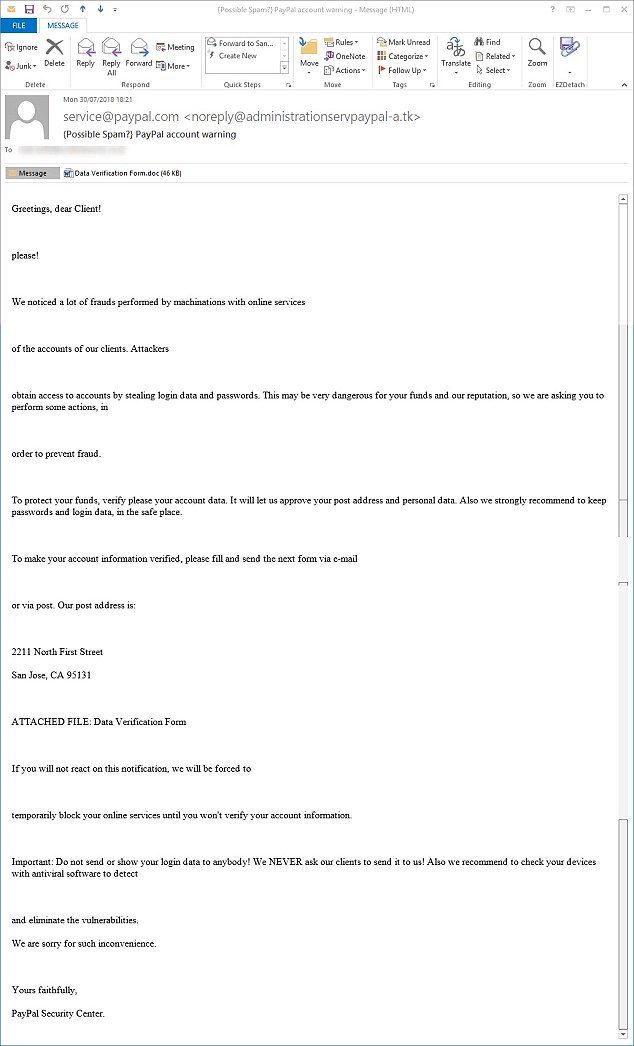PayPal users should be on the lookout for a scam email designed to install malware on their computer, security experts have warned.
The malicious email is disguised to look like an official communication from PayPal, and even appears to be sent from the address ‘[email protected]’. Users who open the email, which is often sent with the subject line ‘PayPal account warning’, are prompted to open an attached Word document laced with malware.
The computer virus appears to only hit Windows machines, with Mac, iPhone and Android users unaffected by the virus — even if they open the fraudulent email. It’s unclear how many people have been targeted in the latest malware attack.
The email continues: ‘To protect your funds, verify please your account data. It will let us approve your post address and personal data. Also we strongly recommend to keep passwords and login data, in the safe place.
SEE ALSO: ANOTHER BLOW TO VIUSASA AS TOP EDITOR LEAVES
‘To make your account information verified, please fill and send the next form via e-mail or via post. If you will not react on this notification, we will be forced to temporarily block your online services until you won’t verify your account information,’ the fraudulent email concludes.
Security experts have urged people to exercise caution if they receive the email.
The email and attached Word document should not be opened on a computer running Microsoft Windows software, experts warned.

There are a number of different variations of the PayPal scam currently being circulated online, according to security blog, My Online Security.
In one example of the malicious correspondence, the email reads: ‘Greetings, dear Client! We noticed a lot of frauds performed by machinations with online services of the accounts of our clients.
READ: RICHARD KAGOE RESIGNS FROM K24
‘Attackers obtain access to accounts by stealing login data and passwords, this may be very dangerous for your funds and our reputation, so we are asking you to perform some actions, in order to prevent fraud.’
Story credit: Joe Pinkstone for Mail Online












1 Comment